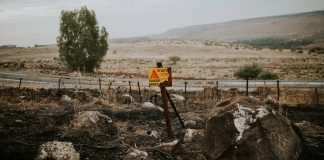The Great Reset: realities, utopia, conspiracy
The phrase "the Great Reset" generated over eight million interactions on Facebook and tweets about it were shared almost two million times on Twitter, since the launch of the initiative.
The doctor who healed hatred
When war kills not one but three of your children, what is there left besides hatred?
Understanding ourselves better, by understanding our dreams
Ever since ancient times, people have been interested in the origin and purpose of dreams. The initial theories relied heavily on the supernatural and dreams were seen as mental meeting places for gods and mortals, where gods could express their will to mortals, reveal the future to them, or deliver messages from the afterlife.
Searching for the ideal partner: how do you know you’ve found the right person?
The beginning of a romantic relationship is often sweet and exciting, full of novelty, enthusiasm, and the thrill of discovery. These early stages create a sense of well-being that leaves little room for doubt. At this point, each partner tends to downplay their weaknesses and highlight their strengths.
Love doesn’t give up
Love: the ultimate subject. We love people for who they are. However, there’s a kind of love too lofty to truly encompass all the nuances, a love that manifests itself toward people regardless of who they are or what they have become. Such a love beautifully encapsulates the story of Ian and Larissa.
What kind of children do our words shape?
"The way we talk to our children becomes their inner voice" (Peggy O'Mara).
Is the Israel-Palestine war the beginning of the end?
The decades-long Israeli-Palestinian conflict has once again reached a boiling point—with the increasing escalation of violence and aggression between Hamas and Israeli forces.
It wasn’t me! It was Eve, the snake or the genes!
The stakes are high when it comes to homosexuality, promiscuity, alcoholism, violence, and the like. Previously seen as a result of environmental influence and moral choice, they have now become a genetical given.
Cures for loneliness
We live in a time in history when we seem to be connected in every way possible. It seems as if there are few, if any, who have no one to socialize with.
The slalom between regrets and wrong estimates
In October 2012, Forbes magazine published a list of the top 25 biggest regrets people have. According to the magazine, the most significant regrets are those concerning relationships with family members and friends, regrets concerning oneself, and career regrets.
Reviving compassion | What not to say to someone who is suffering
Although grief is a universal experience, we respond differently to its onslaught, so it's no wonder that words meant to comfort often add more suffering to an already heavy burden.
Happiness left behind
“A calm and modest life brings more happiness than the pursuit of success combined with constant restlessness.”
When all direction is gone | How to survive adultery
Henri Nouwen once wrote about some trapeze artists who became his friends, emphasising the perfect synchronicity between them and the total trust that the one who jumps has when he lets go of the trapeze and remains in the air for a second, waiting to be caught by his teammate. But what if, at the last moment, when it is too late to...
Everyone goes through a midlife crisis. True or false?
Up until she was 49 years old, Sue Shellenbarger had been happy with her life. She had a nice home in Oregon, USA, and a good job as the Wall Street Journal's work and family columnist. However, in the space of just two years, she had divorced her husband, emptied out her bank account, and developed a real passion for adventure that landed...
Am I materialist enough to resist materialism?
Eye-catching banners on high-traffic websites, marketing campaigns, genuine or illusory discounts, deals that vanish in seconds. Shopping lists, fierce price hunts, early morning alarms. Jumping the gun, millions in sales, ecstatic or dissatisfied customers, delayed deliveries, and blown budgets. In a word: Black Friday.


























